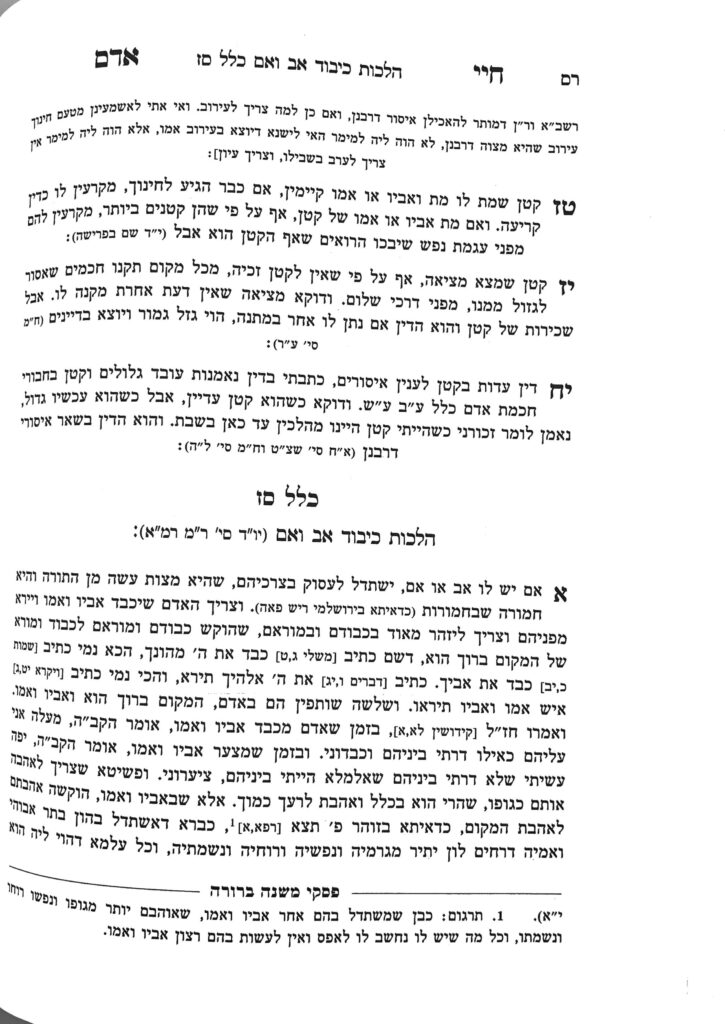We are continuing siman 1. The Chayei Adam brings the Gemara which teaches us that there are three partners in the creation of man: Hashem, the mother, and the father. When a child respects their parents, Hashem considers it as though He “lives” there with them and has been respected as well. When a child causes their parents pain, Hashem says that it is good He does not “live” with them, because if a child is willing to cause pain to their parents, they would cause pain to Hashem as well. We see that the kavod necessary to give a parent is equivalent to the kavod necessary to give Hashem.
It is obvious that one must love his parents. If we are commanded to love any person, we are certainly commanded to love our parents. The Zohar equates the love a person has for their parents to the love they have for Hashem. The Zohar writes that just like a child makes the effort to spend time with their parents, and loves their parents more than any part of their own being, and whatever possessions they own they consider nothing in the face of taking care of their parents, they should have similar love for Hakadosh Baruch Hu.
Chazal say that a person has a responsibility to have hakaras hatov to their parents for everything they gave them (similar to the idea of the Chinuch, shiur 1314). One who does not have hakaras hatov to their parents is considered a rasha, as the pasuk says, loveh rasha velo yeshaleim, a rasha is one who borrows and does not pay back (Tehillim 37:21).. By not having hakaras hatov, a person “borrows” all the good their parents have given them throughout their life without repaying it. Included in that repayment is the requirement to love one’s parents, in the same way that one’s parents loved them.
One should not look at the responsibilities they have towards their parents as a burden. One who does not perform kibud av v’eim will receive negative decrees from shamayim. Yeshayahu describes people who claim to do teshuva, but their speech is empty and their hearts distant from Hashem. He writes that Hashem will continue to punish them (29:13). The Chayei Adam writes that In the same way it is true vis a vis Hashem, it is true vis a vis parents. For this reason, the punishment for a person who curses Hashem is the same as the punishment for a person who curses their parents–sekilah.
Thus, we see parallels between the relationship between hashem and ones parents
Summary
A person must respect, love and have hakaras hatov to their parents, in the same way they have these feelings towards Hashem.



